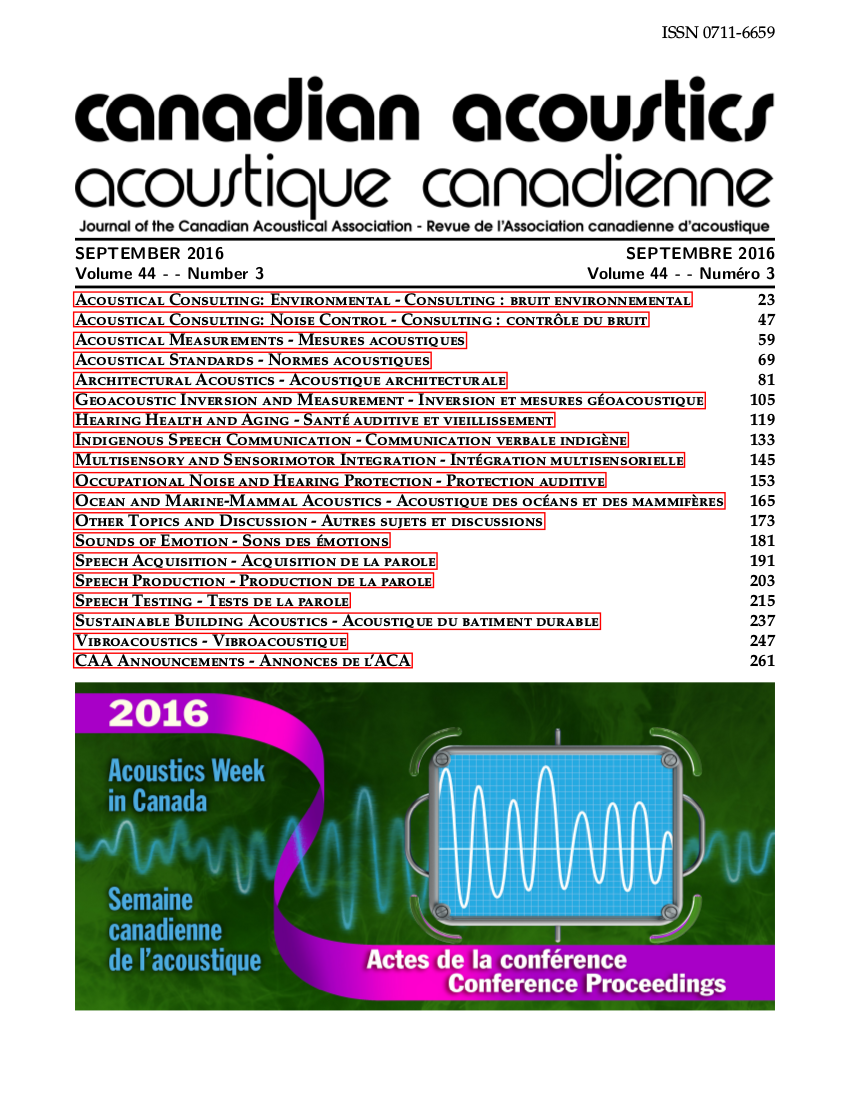Promoting hearing and communication health in long-term residential care through the use of communication apps
Résumé
Elderly persons residing in long-term residential care (LTRC) frequently experience challenges in one or more of the domains of hearing, language, and/or memory. In addition to person-internal constraints associated with hearing loss and/or cognitive declines, the external environment can often present with ambient noise, distractions, and/or cross-language barriers. These internal and external constraints on sensory and cognitive processing can make it challenging for staff and residents to effectively communicate during activities of daily living. Recent technological advances in mobile technology (e.g., tablet, smart phone) and communication Apps (cApps) provide a promising avenue for augmenting residents’ sensory and cognitive processing in the LTRC context. This presentation will provide an overview of research addressing how such technology has been and could be used by care staff in LTRC to meet the communication needs of residents who experience hearing, language and/or cognitive challenges.
Fichiers supplémentaires
Publié-e
Comment citer
Numéro
Rubrique
Licence
Author Licensing Addendum
This Licensing Addendum ("Addendum") is entered into between the undersigned Author(s) and Canadian Acoustics journal published by the Canadian Acoustical Association (hereinafter referred to as the "Publisher"). The Author(s) and the Publisher agree as follows:
-
Retained Rights: The Author(s) retain(s) the following rights:
- The right to reproduce, distribute, and publicly display the Work on the Author's personal website or the website of the Author's institution.
- The right to use the Work in the Author's teaching activities and presentations.
- The right to include the Work in a compilation for the Author's personal use, not for sale.
-
Grant of License: The Author(s) grant(s) to the Publisher a worldwide exclusive license to publish, reproduce, distribute, and display the Work in Canadian Acoustics and any other formats and media deemed appropriate by the Publisher.
-
Attribution: The Publisher agrees to include proper attribution to the Author(s) in all publications and reproductions of the Work.
-
No Conflict: This Addendum is intended to be in harmony with, and not in conflict with, the terms and conditions of the original agreement entered into between the Author(s) and the Publisher.
-
Copyright Clause: Copyright on articles is held by the Author(s). The corresponding Author has the right to grant on behalf of all Authors and does grant on behalf of all Authors, a worldwide exclusive license to the Publisher and its licensees in perpetuity, in all forms, formats, and media (whether known now or created in the future), including but not limited to the rights to publish, reproduce, distribute, display, store, translate, create adaptations, reprints, include within collections, and create summaries, extracts, and/or abstracts of the Contribution.


